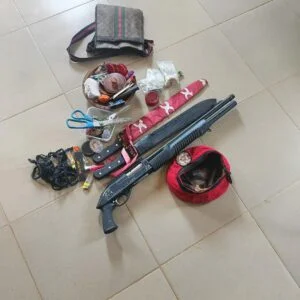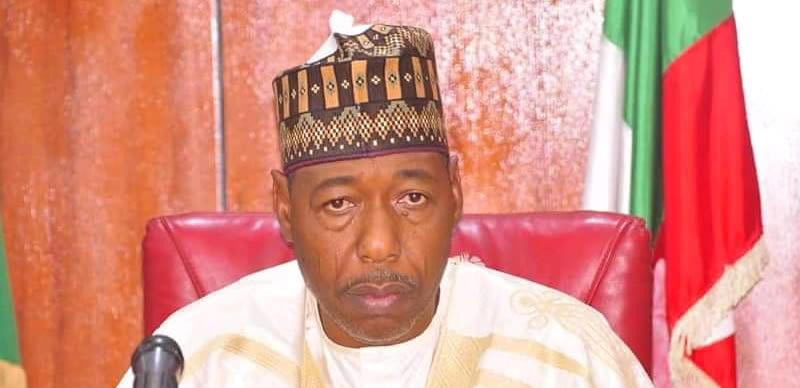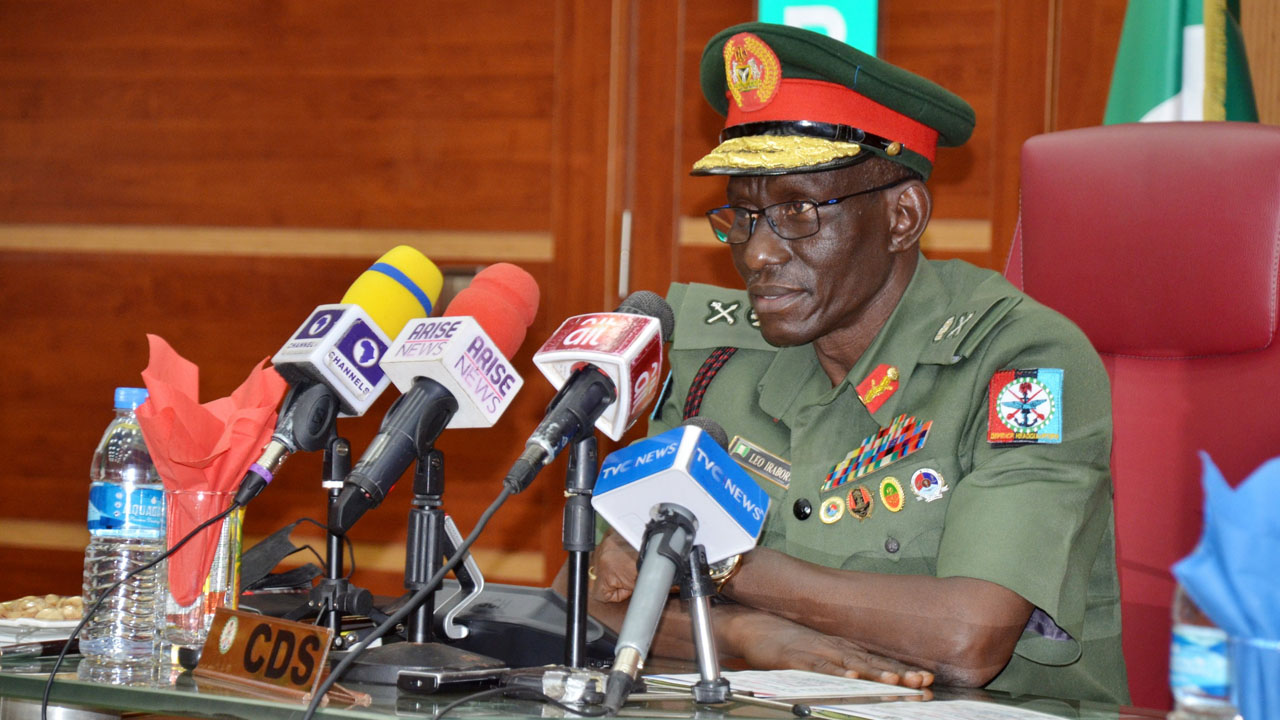Crime
Petrol Subsidy, Oil Theft Push Nigeria’s Currency Past N700/$1 in Parallel Market

The inability of Nigeria to take advantage of rising international oil prices due to massive oil theft, skyrocketing petrol subsidy which remains a drain on the economy as well foreign exchange (FX) speculation by currency traders, among others have combined to push the naira to a record low of N710/$1 on the parallel market.
The development comes against the backdrop of seemingly unbridled borrowing and rising debt service cost which exceeded the country’s revenues by as much as N310 billion in the first quarter (Q1) of 2022 and continues to rise.
The naira depreciated to N710$1 on the parallel market on Wednesday, compared with the N670 to a dollar it closed the previous day. In the past few days, the naira exchange rate against the dollar has been on the decline on the parallel market.
Also, recent data from the Debt Management Office (DMO) revealed that yield on the 13 tracked Nigeria Eurobond prices has continued to dwindle.
The Eurobond price which opened trading in 2022 at $105.087 had dropped to $74.785, representing a decline of $30.30 or 28.8 per cent.
Nigeria recently called off plans to sell Eurobonds this year due to the fear that it might be faced with low patronage as the country’s fundamentals continue to weaken.
In June, the Debt Management Office (DMO) put Nigeria’s total public debt (federal and state governments) at N41.6 trillion or $100.07 billion,” at the end of the first quarter of 2022.
To compound its economic challenges, Nigeria’s main source of FX revenue which is crude oil has also become a source of concern as the crisis in the sector continues to overwhelm the players.
Out of the 1.772 million barrels per day crude oil allocated to the country by the Organisation of Petroleum Exporting Countries (OPEC) in June, Nigeria was only able to produce 1.158 million bpd, according to the latest Monthly Oil Market Report (MOMR).
At a conservative average price of $110 per barrel for the month, a THISDAY analysis showed that Nigeria’s daily underperformance pegged against the OPEC quota yielded a whopping 614,000 bpd or 19.034 million barrels deficit for the month.
A further breakdown revealed that valued against the daily oil price for the period, Nigeria may have lost as much as $2,093,740,000 to its inability to, for months, increase the country’s production level.
For a country with huge foreign exchange shortages, if the loss had been plugged, it could have helped the cash-strapped federating units (states and local governments) embark on major projects.
It is worthy to note that the Nigerian National Petroleum Company Limited (NNPC) has not been able to contribute a kobo to the federation account this year.
Identifying massive crude oil theft as one of the reasons for its inability to meet its oil quota, the federal government had months ago, deployed heavy military presence in the Niger Delta to curb the menace. But even that move has not helped much. The navy appears either unwilling or unable to curb the menace.
Indeed, the top hierarchy of the navy fighting the menace in the Niger Delta have been fingered by locals and several top Nigerians of complicity in the growing oil theft.
A former Chief of Naval Staff, Vice Admiral Ibok-Ete Ibas, had admitted when he lamented the involvement of naval personnel in the illicit oil bunkering and theft in the country, warning them to desist.
“Any act of collusion with criminals or saboteurs of measures emplaced to checkmate illegalities will be met with stiff sanctions in accordance with the law of the land,” he had warned at the decoration of newly promoted rear admirals at the navy headquarters in Abuja.
Although there is no official figure for crude oil stolen on a daily basis, industry players put the losses between 200,000 bpd to 400,000 bpd.
The Nigerian Upstream Petroleum Regulatory Commission (NUPRC) recently set up a committee to investigate the actual number. The group is yet to submit its report.
Tied to the country’s under-production, a few weeks ago, the NUPRC Chief Executive, Mr Gbenga Komolafe, revealed that Nigeria lost $1 billion in revenue during the first quarter of this year due to crude oil theft, warning that the development was a threat to the economy of Africa’s top producer.
Komolafe noted that of the 141 million barrels of oil produced in the first quarter of 2022, only about 132 million barrels of oil were received at export terminals.
“This indicates that over nine million barrels of oil were lost to crude oil theft … this amounts to a loss in government revenue of about $1 billion … in just one quarter,” Komolafe added.
However, any hope of a quick recovery from the current economic downturn remains forlorn with fresh data from the NNPC indicating that subsidy on petrol now exceeds the country’s total revenues from the sales of crude oil and gas.
Information from the NNPC’s monthly presentation to the Federation Account Allocation Committee (FAAC) meeting held Tuesday, obtained yesterday showed that in the first half of 2022, petrol subsidy claims surpassed oil and gas revenue by a whopping N210 billion.
In addition, within the period under review, the NNPC recorded N2.39 trillion as gross revenues from oil and gas receipts, while subsidy claims amounted to N2.6 trillion.
The data further revealed that N1.59 trillion was used to cover part of the subsidy costs in the last six months, leaving an outstanding balance of N1.01 trillion to be recovered from July 2022 proceeds in August.
Nigeria is currently facing an economic crisis with rising debt servicing costs, fuel subsidy payments, which from all indications could exceed the budgeted N4 trillion this year as well as a massive drawdown on its Excess Crude Account (ECA).
The federal government is projecting that petrol subsidy would rise to N6.72 trillion in 2023, if the country decides to continue with the controversial policy.
In January, February and March 2022, data indicated that petrol subsidy payments gulped N210.38 billion, N219.78 billion, and N245.77 billion, respectively while in April, Nigeria spent N271 billion and N327.07 billion in May 2022 to cater for the shortfall of the importation of petrol.
A further breakdown of the subsidy claims showed that N564.65 billion was carried forward from the previous month as an unrecovered value shortfall and N263.95 billion from May 2022 subsidy outstanding, including N501.30 billion for the current month’s subsidy cost. Overall, the value shortfall for the period stood at N1.32 trillion.
Of the total figure, NNPC deducted N319.18 billion from the federation account, leaving an outstanding balance of N1.01 trillion to be carried forward and recovered from July proceeds due in August.
To compound the current subsidy crisis, Nigeria does not know its exact daily consumption of petrol and is believed to be subsidising neighbouring countries due to the arbitrage created by the subsidy in Nigeria.
The problem is expected to even worsen in 2023 with a current projection of as much as N6.72 trillion by the country in its 2023-2035 medium-term expenditure framework & fiscal strategy paper (MTEF&FSP).
Earlier in the year, the federal government deferred the planned petrol subsidy removal by 18 months, saying the impact would be too negative on the poor and the less privileged.
Nigeria imports all its petrol because it does not refine a drop of the product in the country as all the refineries have been non-functional for years. It operates a swap oil-for-petrol regime which is largely seen as opaque.
Added to that, it has in recent years experienced massive oil theft, deteriorating upstream infrastructure, critically reducing its capacity to push enough barrels into the international market.
In a related development, an oil pipeline capable of hauling 180,000 barrels per day across Nigeria has ceased transporting crude since mid-June due to theft, a person familiar with the information, told Bloomberg yesterday.
The Trans-Niger Pipeline (TNP) has yet to be formally shut, said the person who declined to be identified because the information isn’t public. The link’s capacity is about 15 per cent of Nigeria’s most recent average daily output, according to Bloomberg calculations.
Nigeria, Africa’s largest oil producer and a member of OPEC has tried to stamp out sabotage on its pipeline network in recent years.
Producers received as little as five per cent of crude volumes pumped through the pipeline between October 2021 and February, an industry union reported earlier this year.
It reflects a larger issue for Nigeria, which is facing shrinking investment and hasn’t been able to meet its OPEC+ oil-production quota in order to benefit from a surge in prices.
The TNP was illegally tapped in about 150 places, the Petroleum and Natural Gas Senior Staff Association of Nigeria (PENGASSAN) said in March when local government checked some of the areas where the theft occurred.
TNP is the same line that has recently drawn comments from Chairman of Heirs Holdings, Mr Tony Elumelu, among several industry operators who have raised the alarm on the growing oil theft in the country.
Crime
Police Foil Cult Initiation in Anambra, Arrest Six Suspects

The Anambra State Police Command has foiled a cult initiation ceremony in Nawfia, Njikoka Local Government Area of the state.
Spokesperson for the Command, SP Tochukwu Ikenga, disclosed this in a statement issued on Tuesday in Awka.
According to Ikenga, the operation was carried out by police operatives around 9:30am on June 15, leading to the arrest of six suspects at the scene.
Recovered during the raid were one Jojef pump action gun, two cartridges, and a golden-coloured Lexus SUV with registration number ATN 202 AE. Other items found include two cutlasses, two scissors, a cap bearing the inscription of the Supreme Vikings Confraternity, charms, and substances suspected to be hard drugs.
“They are currently undergoing police interrogation to get more insight into their modus operandi, after which the case will be charged to court on the conclusion of the investigations,” Ikenga stated.
The police spokesperson reassured residents of the command’s unwavering commitment to fighting cultism and other related crimes across the state.
Crime
Court remands 2 over alleged attempted murder

An Ikeja Magistrates’ Court, Lagos, on Wednesday, remanded two persons, Olaitan Fasasi and Kehinde Tobiloba in a correctional facility over alleged attempted murder.
Fasasi, 40, and Tobiloba, 26, whose addresses were not provided, are being charged with conspiracy, attempted murder and membership of a secret society.
The Magistrate, Mr L.A Owolabi, did not take the plea of the defendants for want of jurisdiction.
Owolabi directed the police to forward the case file to the Director of Public Prosecution for legal advice.
He thereafter adjourned the case until May 31 for mention.
The Prosecutor, Josephine Ikhayere, told the court that the defendants committed the offences at about 5.02p.m on Feb. 15, at Mushin, Lagos.
She said that Fasasi, Tobiloba and others now at large, attempted to commit murder by shooting at a resident, Alfred Ademola.
“They armed themselves with a locally made gun. They belong to Eiye Confraternity, a group proscribed by law,”, she said.
Ikhayere said that the offences contravened Sections 230(1) and 411 of the Criminal Law of Lagos State, 2012.
He said that the actions of the defendants also contravened Section 2(3)(a)(b)(c)(d) of the unlawful societies and Cultism Law of Lagos State Law.
Crime
Man jailed 3 months for stealing mobile phone

An Area Court in Jos, on Tuesday, sentenced one Jeptha John, to three months imprisonment for stealing a Redmi mobile phone valued at N165, 000.
The judge, Shawomi Bokkos, sentenced the John after he pleaded guilty to the offence.
The judge, however, gave the convict an option to pay N20, 000 fine and N50, 000 restitution to the complainant.
Bokkos said that if the convict defaulted in paying the restitution, three months should be added to his sentence to make it six months imprisonment.
Earlier, the police prosecutor, Insp Monday Dabit, told the court that the case was reported at the B Division Police Station, Jos, on Dec. 1, 2024, by Ms Nerat Danjuma.
He said that the complainant alleged that the defendant trespassed into her house and stole her mobile phone valued at N165, 000.
The prosecutor further told the court that the offence contravened the Plateau State Penal Code, Law of Northern Nigeria.
-

 Headlines4 years ago
Headlines4 years agoFacebook, Instagram Temporarily Allow Posts on Ukraine War Calling for Violence Against Invading Russians or Putin’s Death
-

 Headlines4 years ago
Headlines4 years agoNigeria, Other West African Countries Facing Worst Food Crisis in 10 Years, Aid Groups Say
-

 Foreign4 years ago
Foreign4 years agoNew York Consulate installs machines for 10-year passport
-

 News1 year ago
News1 year agoZero Trust Architecture in a Remote World: Securing the New Normal
-

 Entertainment3 years ago
Entertainment3 years agoPhyna emerges winner of Big Brother Naija Season 7
-

 Headlines2 years ago
Headlines2 years agoNigeria Customs modernisation project to check extortion of traders
-

 Entertainment2 years ago
Entertainment2 years agoMovie download platform, Netnaija, announces closure
-

 Economy2 years ago
Economy2 years agoWe generated N30.2 bn revenue in three months – Kano NCS Comptroller















